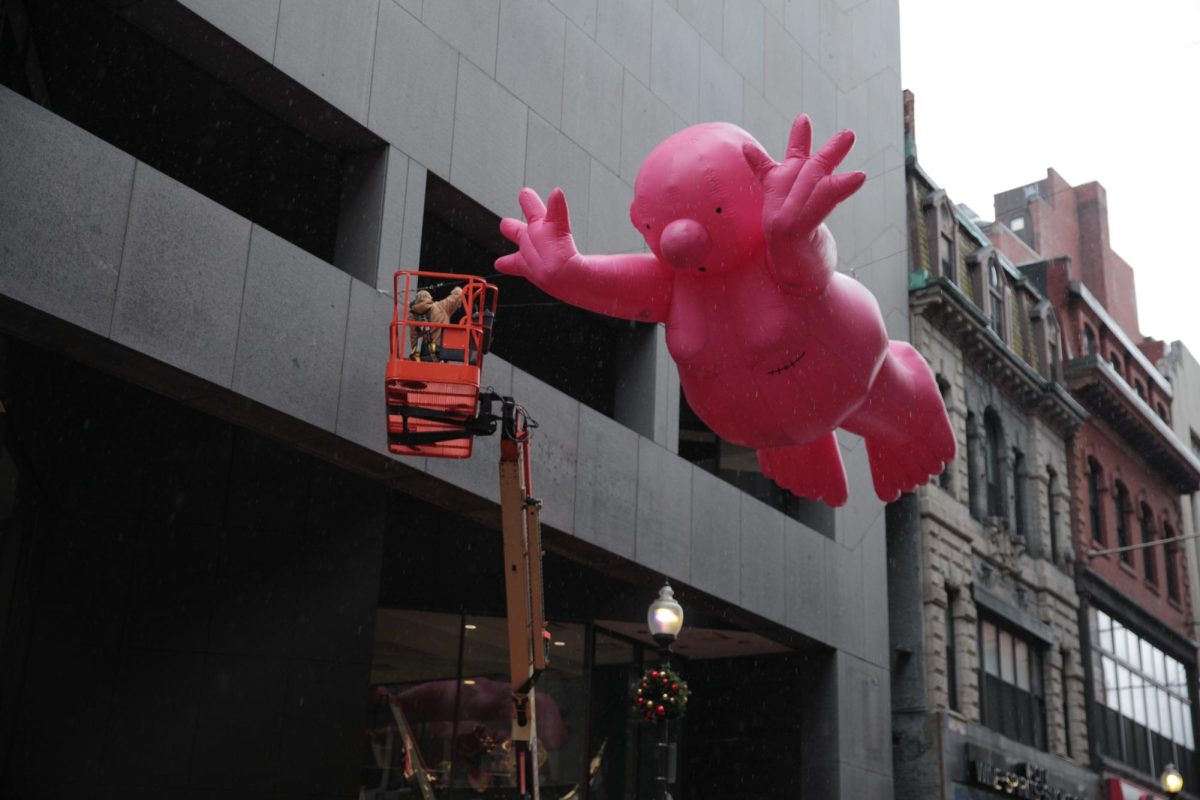By Angelica Recierdo, News Staff
It’s the kind of chill that is felt only in meat lockers or hospital stock rooms. I was in the latter, amidst plastic-wrapped tools that only rubber-gloved hands are certified to touch.
She was a couple inches adjacent to me searching for a nasal cannula. The distance between us was approximately the length that the wrist is distal to the elbow. Her brow was furrowed and I could see the night shift seeping into her eyes. Her breath warmed the room a bit, giving some vitality to the otherwise menacing display of gleaming tubes and metal surfaces.
I looked at her and hoped to transmit the most empathy I could muster at 3 a.m. I gave her a look of solidarity because no one else could ever understand what this feels like. I’m sure much heartache takes place within the walls of a medical closet. But I can attest that that is where courage is found again. We are nurses.
It took me a while to become comfortable just entering a patient’s room. How could my feeble presence ever put someone at ease? I gulped in intimidation when seeing life-sustaining machines connected to every possible orifice and wires tangling my path to them like an obstacle course. I cringed when asking “How are you doing?” would result in a painful grunt or a labored “oh, fine.”
As a novice, you find yourself at a loss for words around people who are sick or in pain. You feel helpless so you do the physiological tasks, and scurry off. Then you progress and you stand a bit taller, wearing your stethoscope like a medallion around your neck. You garner some small-talk skills and warm up to simple starters like “Where’s home for you?” or “Oh yeah, ‘Family Feud is a riot.’”
Then one day, you’ll surprise yourself. You’ll be sitting with your ventilated patient and the silence will be comforting. The whir of their breathing apparatus will be soothing. You’ll talk to him with ease like there’s a cup of coffee between you.
As far as communication goes, the five senses become your greatest tools of operation. They will be sharpened under many cases and the fine-tuned detective within you will emerge.
It’s a wonder how a murmur isn’t a low whisper exchanged in conversation, that the whites of your eyes could be yellow or blue or that there’s nothing scarier than a lump that won’t go away. You become a storyteller of the body. You appreciate its honesty; symptoms arising for a reason, most likely for some imbalance.
You become frustrated at those committing the typical healthcare sins, like smoking or eating fatty foods. And you’ll also be frustrated at those that had nothing to do with their prognosis other than being born. Karma and fate will try to explain themselves, but let compassion crush them both.
Birth and death are daily companions: the transitions of both always accompanied by a held breath. You’ll hold your breath waiting for that initial cry from a newborn, muscles relaxing because you know that’s the first sign of life — a triumphant, vocal declaration of survival. And you’ll hold your breath once more as your dying patient slips away under layers of morphine.
My mind would always drift to ‘firsts’ and ‘lasts’ during these occasions. When is the first time this baby will laugh? Who did this dying man last say “I love you” to? You find yourself filling in the gaps of stories lost.
There are probably fewer places where humanity genuinely surfaces than in a hospital: mothers gripping children’s hands tighter before life-changing appointments, husbands leaned over stretchers, stealing one last kiss before surgery. I can’t think of a more wretched place to be than in waiting, your mind riddled with everything that could go wrong.
These people are static, inhabiting waiting room chairs heavily with pause. Humans shouldn’t go through this alone. You remember your role, offering them a glass of water and they look up at you with eyes prickled with tears. They sigh longer than anyone else.
Their shoulders collapse and you instill in them the same courage you found for yourself in the medical closet.









